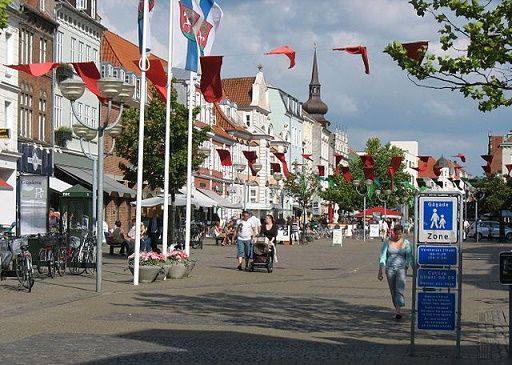If you are a tourist in a strange town, where do you go, what shops and restaurants do you visit and what local sights do you head for?
The chamber of commerce and tourist organisation in Horsens in Jutland has just launched a project to collect data on just these things, reports Version2.dk.
Since March 2, there have been 28 sensors in the city centre collecting and registering WiFi signals and with them, the media access control (MAC) address of mobile phones from passers-by up to 20 metres away.
Separating the sheep from the goats
“At the moment we don’t know much about the tourists that visit Horsens for a day or two. We’d like to have better data to understand how they move around the town,” said Helle Berthold Rosenberg, head of tourism in Kystlandet.
The data collected will be put through a hash algorithm that generates a value that can’t be traced back to the original MAC address, so it will not be possible to identify individuals.
The hash value will remain the same for 30 days so that tourists can be separated from local residents though their movement patterns.
The inspiration for the project came from ‘Visit Djursland’ that has been collecting the same type of data from 26 sensors since 2017. According to Tourism.nu, from July 2017 up to October 22 the same year, 10 million readings were collected from 200,000 individual guests.
Privacy concerns
However, a number of people have used the Facebook page of the local newspaper, Horsens Folkeblad, to register concerns about privacy.
Among other things, Jens Posselt asked: “What guarantee do we have that the information is made anonymous? Who is checking the people collecting it? What business is it really of the shopkeepers in Horsens how people move around?”
And Ona Ina added that “Looks as if there could be a problem with this Big Brother data surveillance.”
But Kystland’s head of tourism does not see a problem. “It’s important to emphasise that we can’t see who is moving around where. All the data is anonymous and used for compiling statistics showing movent,” she added.
“Personally, I’m more worried about the data collection that Google and Facebook engage in.”













